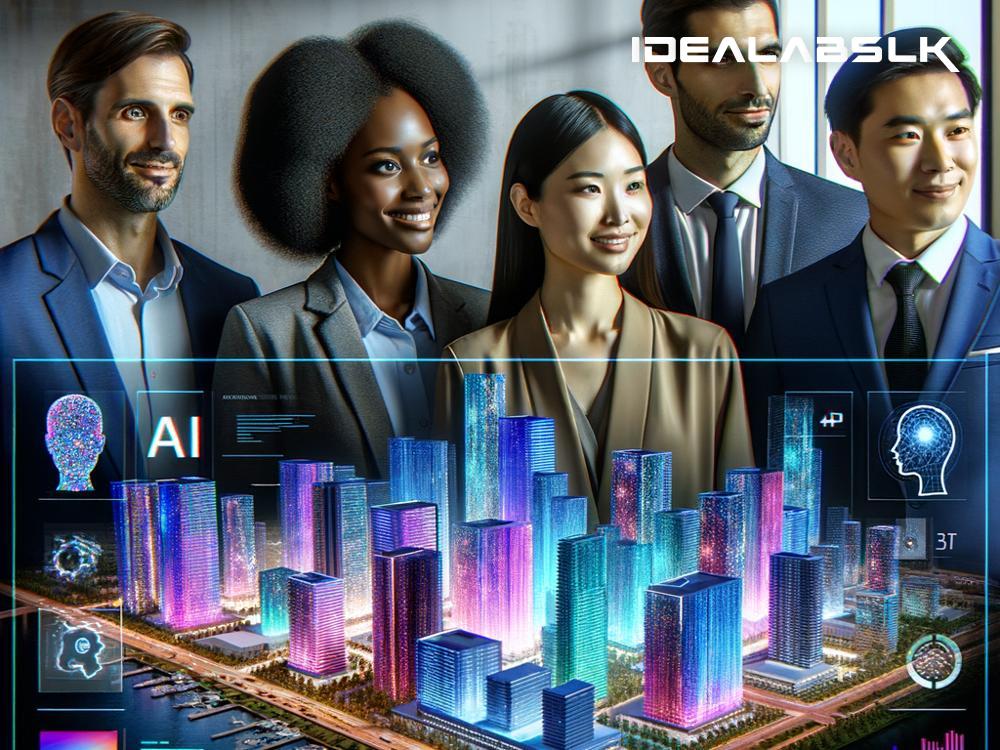Revolutionizing Property Development Decision-Making Through AI
In the fast-paced world of property development, making informed decisions quickly can mean the difference between seizing a golden opportunity and missing out. As the industry continues to navigate a sea of data, ranging from market trends to local zoning laws, Artificial Intelligence (AI) has emerged as a lighthouse, guiding developers through complex information to make smarter, more strategic choices. This blog post explores how AI is innovating property development decision support, simplifying concepts for a broad audience.
Understanding AI in Property Development
AI, in the simplest terms, is a branch of computer science focused on creating systems that can learn from data, make decisions, and solve problems almost like a human would. In property development, this technology sifts through mountains of information - from demographic shifts to environmental considerations - to offer insights that might take humans days, weeks, or even months to uncover.
Speeding Up Market Analysis
One of the primary challenges in property development is understanding market dynamics. What are the trending neighborhoods? What type of properties are in demand? AI can analyze vast datasets, including historical property prices, emerging trends, and consumer preferences, in a fraction of the time it would take a human analyst. This rapid analysis helps developers identify lucrative opportunities and understand market demand to guide their projects.
Enhancing Location Intelligence
Choosing the right location is crucial in property development. AI elevates location intelligence by integrating data from multiple sources, including geographic information systems (GIS), social media sentiment, and infrastructure developments. This comprehensive approach allows developers to assess the potential of a site more accurately. For example, an AI system could highlight a site's proximity to key amenities, potential future developments, and even predict its appeal to future buyers or tenants.
Streamlining Regulatory Compliance
Navigating the maze of regulatory compliance can be daunting. AI simplifies this by keeping track of zoning laws, environmental regulations, and building codes, ensuring that developers are aware of all legal constraints early in the planning stage. This proactive approach can save significant time and resources, avoiding legal hurdles that can derail projects down the line.
Predictive Analytics for Risk Management
AI's predictive analytics capabilities are a game-changer for risk management in property development. By analyzing historical data, AI can identify potential risks, from market downturns to environmental hazards. This foresight allows developers to make contingency plans, mitigate risks, and make informed decisions on whether to proceed with a project, adapt plans, or explore different opportunities.
Optimizing Design and Construction
AI doesn't just stop at the planning stage; it extends into design and construction. AI-powered tools can optimize building designs for efficiency, cost, and environmental impact. For instance, AI can recommend materials and construction techniques that reduce costs and carbon footprints. During construction, AI can monitor project progress, predict potential delays, and suggest adjustments to keep projects on track.
Engaging Stakeholders
Communication with stakeholders, from investors to future tenants, is vital. AI can personalize stakeholder engagement through data-driven insights, ensuring that presentations and reports resonate with their interests and concerns. By leveraging AI, developers can build stronger relationships, foster trust, and attract investment.
The Future Is Here
AI in property development is not just a futuristic concept; it's a present-day reality that's continuously evolving. As technology advances, AI’s role in decision support will only grow, becoming more integrated into every aspect of property development, from ideation to completion.
Final Thoughts
AI is transforming property development, offering tools that enhance decision-making, reduce risks, and optimize outcomes. By embracing AI, developers can navigate the complexities of the market more efficiently, delivering projects that are not only profitable but also sustainable and responsive to community needs. In essence, AI is not just supporting decisions; it's reshaping the future of property development.
As we look ahead, the integration of AI in property development promises to usher in an era of innovation and efficiency. For developers willing to embrace this technology, the possibilities are boundless. The journey toward smarter, AI-driven property development is just beginning, and it's an exciting time to be part of this transformation.

